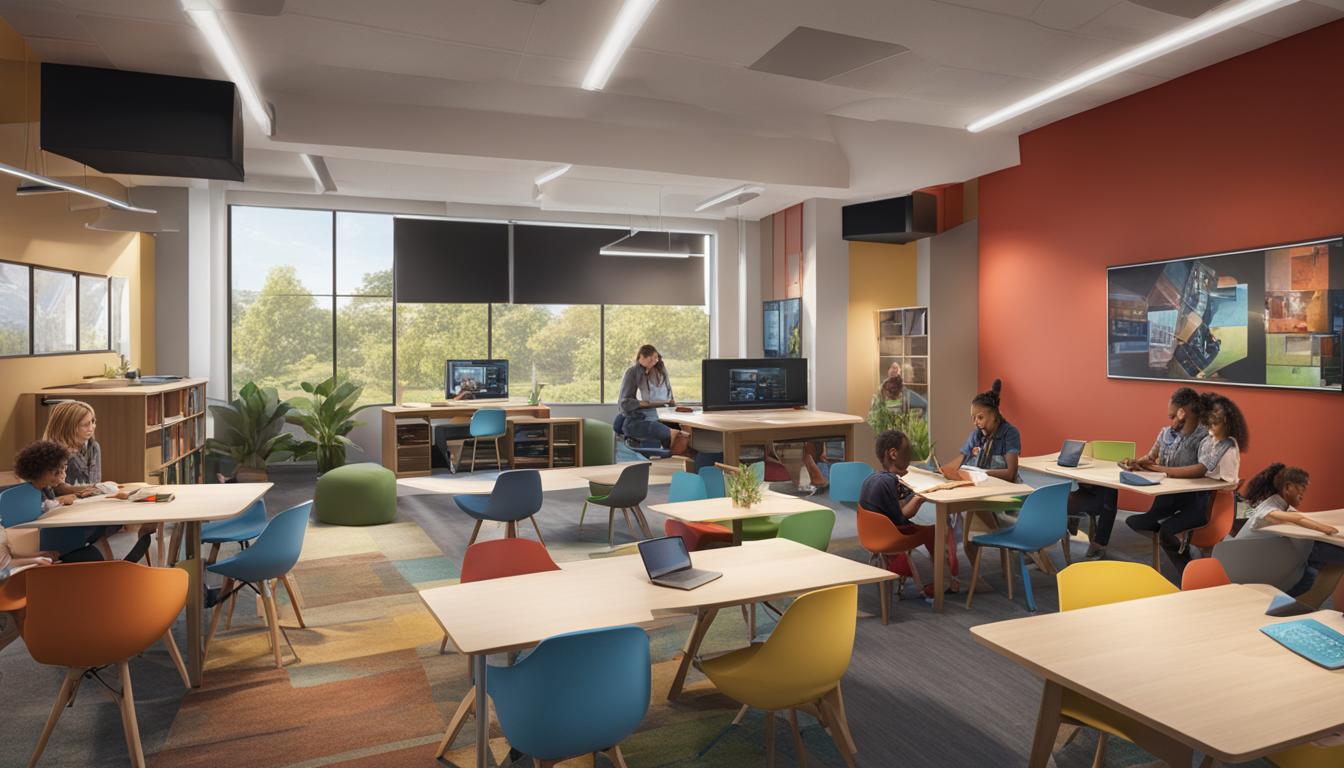The education landscape is evolving, and the rise of micro-schools is at the forefront of this transformation. These alternative educational institutions are revolutionizing K12 education, offering personalized and flexible learning experiences that cater to the unique needs and interests of every student.
Micro-schools, also known as independent schools or homeschooling communities, have gained significant popularity among parents who seek a more customized approach to their child’s education. With small class sizes and a focus on individualized instruction, micro-schools provide a nurturing environment where students can thrive academically and personally.
At micro-schools, personalized learning is not just a buzzword; it’s the foundation of their educational philosophy. By tailoring the curriculum to the specific strengths, interests, and learning styles of each student, micro-schools create an engaging and effective learning experience.
One of the main advantages of micro-schools is their flexible approach to education. Students have the freedom to explore subjects in-depth, set their own pace, and collaborate with peers in ways that traditional schools often cannot accommodate.
Moreover, micro-schools integrate technology to support self-directed learning. By harnessing digital tools and platforms, students can access a wealth of educational resources, engage in interactive activities, and connect with experts worldwide.
If you’re seeking an alternative to traditional schools, micro-schools offer a compelling solution. Experience the benefits of personalized learning, flexible schedules, and a supportive community by considering Canada Global Academy’s Micro-School Program today.
Join the revolution in K12 education and provide your child with an education that empowers their individuality and fosters their intellectual growth.
Contents
- 1 How Micro-Schools Revolutionize One-On-One Learning
- 2 Evaluating If Micro-Schools Are Right for Your Child
- 3 Comparing Micro-Schools vs Traditional Schools
- 4 Encouraging Customized Edtech Innovation Fueling Self-Directed Learning
- 5 Optimizing the Teacher-Student Connection: Rethinking Primary Education Spaces and Facilities for Hyperlocal Schools
- 6 Launching Your Own Profitable Micro-School: A Step-by-Step Guide
- 7 Micro-Schools for Gifted Students: Customizing Advanced Curriculum
- 8 Harnessing Technology in Micro-Schools: AI, VR, and Beyond
- 9 FAQ
- 9.1 What are micro-schools?
- 9.2 How do micro-schools revolutionize one-on-one learning?
- 9.3 What are the benefits of one-on-one learning in micro-schools?
- 9.4 Are micro-schools suitable for students with special needs?
- 9.5 How do micro-schools compare to traditional schools?
- 9.6 How do micro-schools encourage self-directed learning?
- 9.7 How do micro-schools optimize the teacher-student connection?
- 9.8 How can I launch my own profitable micro-school?
- 9.9 Are there micro-schools catering to gifted students?
- 9.10 How do micro-schools integrate technology?
How Micro-Schools Revolutionize One-On-One Learning
Micro-schools are transforming the way we approach one-on-one learning, offering individualized instruction that caters to the unique needs and interests of each student. With small class sizes and a close-knit learning environment, micro-schools provide a personalized approach that fosters academic success and deep engagement in education.
One of the key advantages of micro-schools is their learner-driven instruction methods, where students actively participate in their learning journey. This approach empowers students to set their own goals, explore topics of interest, and take ownership of their education. By promoting a student-centered environment, micro-schools nurture a deeper understanding of concepts and enhance critical thinking skills.
The benefits of one-on-one learning in micro-schools extend beyond the classroom. The personal attention students receive from teachers allows for individualized support and guidance tailored to their specific needs. This close teacher-student relationship fosters a deeper understanding of concepts and enhances academic achievement. Additionally, one-on-one learning in micro-schools enables students to work at their own pace, ensuring a thorough grasp of concepts before moving forward. This tailored approach to education not only promotes academic success but also instills a lifelong love for learning in students.
The Benefits of One-On-One Learning in Micro-Schools
Micro-schools offer several advantages when it comes to one-on-one learning:
- Personal attention: Students receive individualized support and guidance tailored to their specific needs, fostering a deeper understanding of concepts and enhancing academic achievement.
- Higher engagement and motivation: The personalized nature of instruction in micro-schools often leads to higher levels of student engagement and motivation in the learning process.
- Flexible pace: One-on-one learning allows students to work at their own pace, ensuring a thorough understanding of concepts before progressing to new material.
- Student-centered approach: Micro-schools embrace learner-driven instruction methods, empowering students to take an active role in their learning journey and explore topics of interest.
Overall, micro-schools revolutionize one-on-one learning by providing a personalized and student-centered approach. The individualized instruction, personal attention, and tailored support offered in micro-schools contribute to academic achievement, engagement, and a lifelong love for learning.
Evaluating If Micro-Schools Are Right for Your Child
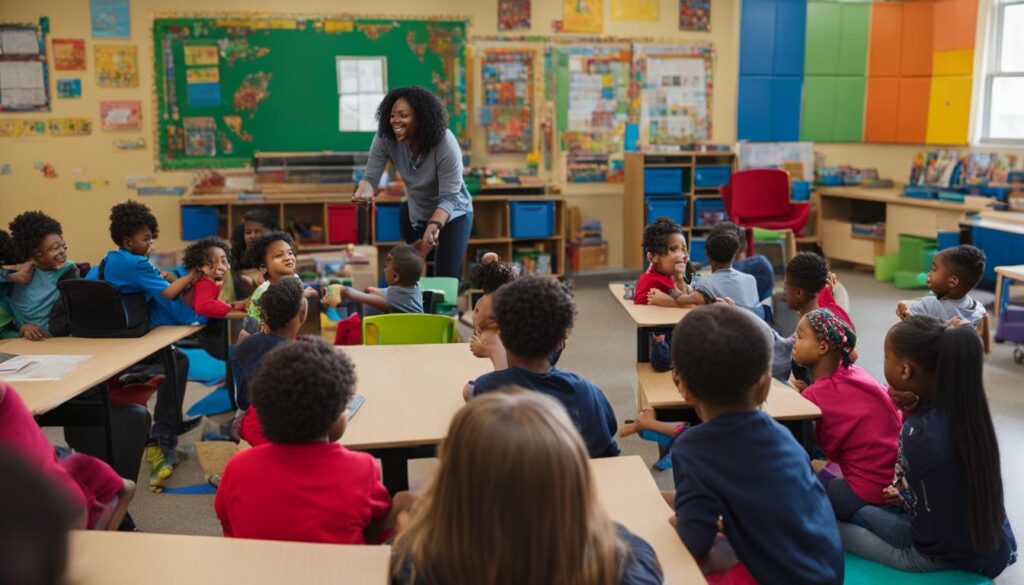
When considering if micro-schools are the right choice for your child, it is important to evaluate the unique benefits that these alternative educational options offer. Micro-schools provide personalized learning experiences tailored to the individual needs and interests of each student. This customized approach is particularly beneficial for students with special needs, as micro-schools can provide individualized curriculum and accommodations to support their unique learning requirements. Micro-schools also embrace neurodiversity and create inclusive environments that celebrate the strengths and abilities of all students.
By evaluating the specific needs and learning styles of your child, you can determine if a micro-school is the right fit for their educational journey. Micro-schools offer significant benefits for students with special needs. These schools provide individualized curriculum and accommodations tailored to the unique learning requirements of students with disabilities. Micro-schools create inclusive environments that support the strengths and abilities of all students, fostering a sense of belonging and promoting positive self-esteem. The small class sizes in micro-schools allow for tailored support and attention, enabling students with special needs to thrive academically and reach their full potential. A nurturing and accepting atmosphere in micro-schools helps to remove the barriers that may exist in mainstream educational settings, allowing students with special needs to flourish and succeed.
Comparing Micro-Schools vs Traditional Schools
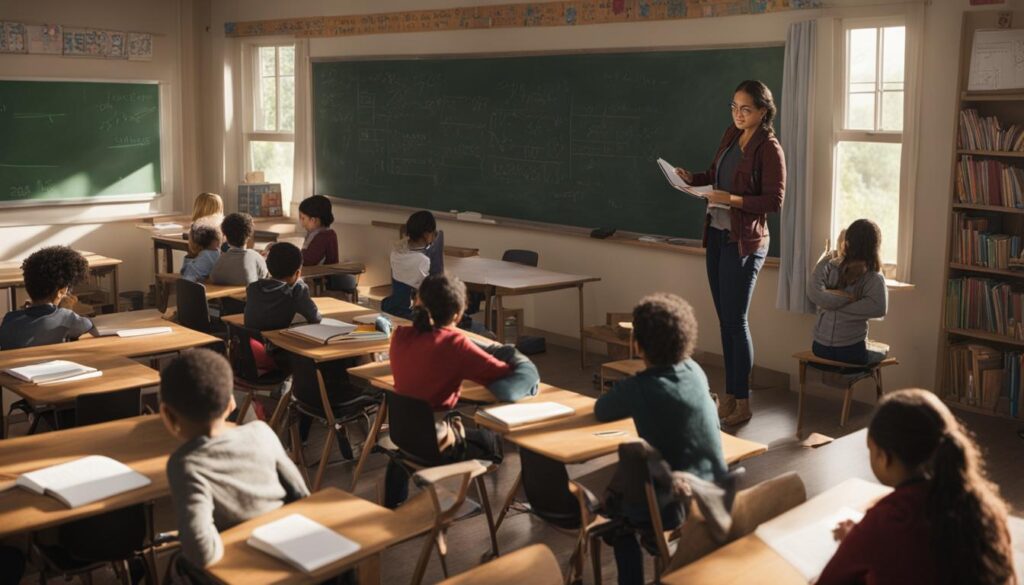
When deciding between micro-schools and traditional schools, it is important to consider the key differences and advantages that each option offers. Micro-schools provide an alternative approach to education, offering custom curriculum and a more personalized learning experience. Traditional schools, on the other hand, follow a standardized curriculum and typically have larger class sizes.
Micro-schools, with their small class sizes, allow for individualized instruction and more personalized attention. This personalized approach ensures that each student’s unique needs and interests are addressed, resulting in a more engaging and effective learning experience. On the other hand, traditional schools often have larger class sizes, which can limit the amount of individualized attention that each student receives.
Micro-schools also offer the advantage of a custom curriculum. These schools can tailor the educational experience to the specific needs and interests of the students, providing a more relevant and meaningful education. In traditional schools, the curriculum tends to be standardized, which may not fully cater to the individual needs and preferences of the students.
By comparing the unique features and benefits of micro-schools and traditional schools, parents can make an informed decision about the best educational option for their child. Micro-schools offer a more personalized and customized approach to education, with small class sizes and individualized instruction. On the other hand, traditional schools follow a standardized curriculum and typically have larger class sizes. Ultimately, the choice between micro-schools and traditional schools depends on the individual needs and preferences of the students and their families.
Ready to explore the benefits of micro-schools for your child? Discover the Canada Global Academy Micro-School and embark on a personalized learning journey tailored to your child’s needs. Click here to learn more and enroll today.
Encouraging Customized Edtech Innovation Fueling Self-Directed Learning
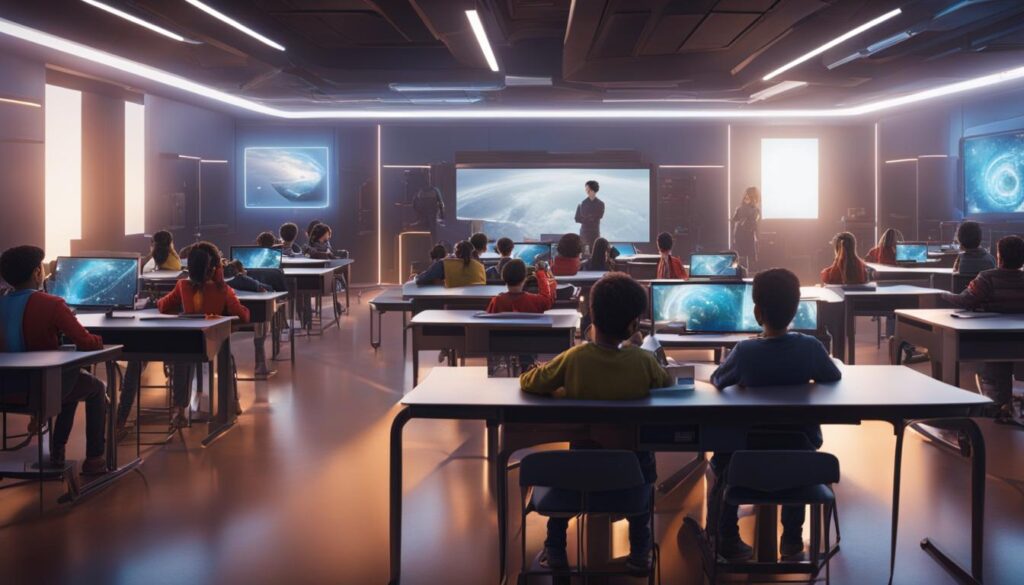
Customized edtech is revolutionizing education by fostering innovation and empowering self-directed learning. In the realm of education, micro-schools are leading the charge in integrating technology to enhance personalized and self-directed learning experiences. These schools leverage customized edtech tools and platforms to provide students with the ability to learn at their own pace and explore topics of interest, ultimately fostering creativity and curiosity.
By embracing technology integration, micro-schools offer a wide range of resources and learning materials, enabling students to engage in independent and self-driven learning. Through the integration of customized edtech, micro-schools empower students to take ownership of their education and develop critical skills for the digital age. The seamless integration of technology enhances the learning experience, providing students with the tools they need to thrive in an increasingly digital world.
With customized edtech, students can access a vast pool of knowledge, expanding their horizons and exploring subjects that resonate with their individual interests. They can engage in interactive learning experiences, accessing virtual simulations and immersive educational content, such as virtual reality (VR) environments, which further deepen their understanding of complex concepts.
The benefits of customized edtech in micro-schools extend beyond the classroom. The integration of technology fosters collaboration, communication, and problem-solving skills, preparing students for the demands of the fast-paced digital age. As technology continues to advance, micro-schools will play a crucial role in shaping the future of education, equipping students with the necessary skills to thrive in an ever-evolving world.
To experience the transformative power of customized edtech in micro-schools, explore Canada Global Academy.
Optimizing the Teacher-Student Connection: Rethinking Primary Education Spaces and Facilities for Hyperlocal Schools
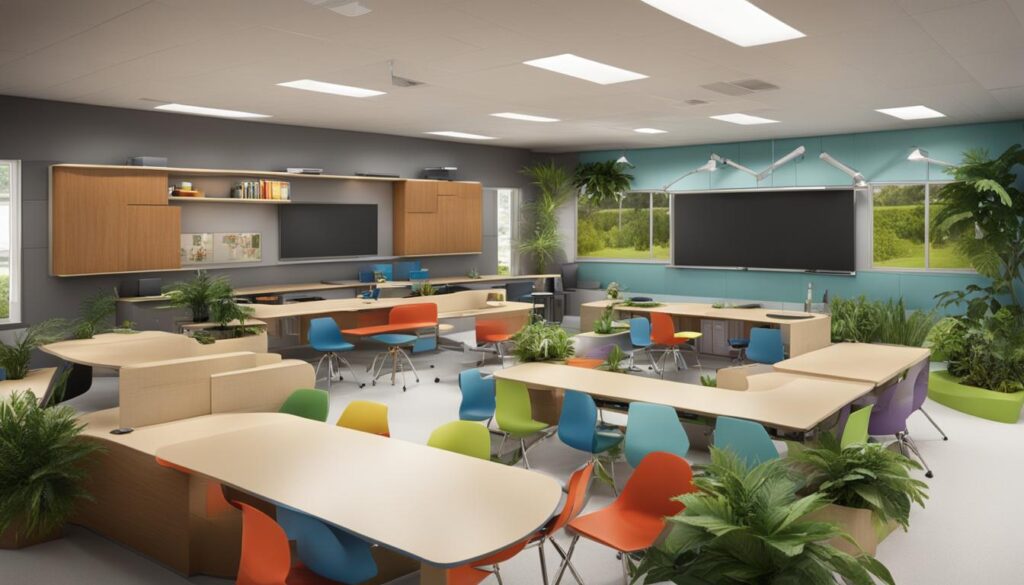
Micro-schools prioritize and optimize the teacher-student connection by creating intimate learning environments. With small class sizes, teachers are able to develop strong relationships with their students and provide individualized instruction to meet their unique needs. This personalized approach fosters a deeper understanding of concepts and enhances academic achievement.
One of the key factors in optimizing the teacher-student connection is rethinking primary education spaces and facilities. Micro-schools understand the importance of creating learning environments that foster creativity, collaboration, and active learning. By redesigning traditional school spaces, micro-schools create engaging and flexible environments that inspire students and enhance their learning experiences.
Hyperlocal education is a concept embraced by micro-schools, emphasizing the importance of serving the local community and tailoring education to its unique needs. By understanding the specific challenges and opportunities within the community, micro-schools can provide education that is relevant and meaningful to the students.
Facilities in micro-schools are carefully designed to support optimized learning spaces. These facilities often include areas for group collaboration, individual reflection, and hands-on learning. By providing diverse spaces, micro-schools cater to different learning styles and encourage students to explore and engage with the curriculum in various ways.
Overall, micro-schools prioritize the teacher-student connection by creating intimate and supportive learning environments. By reimagining primary education spaces and facilities, these schools optimize the learning experience and empower students to thrive academically and personally.
Launching Your Own Profitable Micro-School: A Step-by-Step Guide

If you are interested in launching your own profitable micro-school, this step-by-step guide will provide you with valuable insights and guidance. Starting a micro-school involves careful planning and preparation, from establishing your educational philosophy to recruiting students and creating a marketing strategy.
Here are the essential steps to follow:
- Identify Your Target Audience: Determine the specific demographic and needs of students and families in your area. Consider factors such as age range, educational preferences, and community dynamics.
- Design a Customized Curriculum: Develop a curriculum that aligns with your educational philosophy and caters to the unique needs and interests of your target audience. Focus on providing a well-rounded education that fosters academic growth and personal development.
- Secure Funding: Explore various funding options, such as grants, loans, and sponsorships. Create a comprehensive budget that covers initial expenses, ongoing operations, and potential growth.
- Find Suitable Facilities: Identify suitable locations for your micro-school that provide a safe, conducive learning environment. Consider factors such as accessibility, size, and amenities.
- Hire Qualified Teachers: Recruit experienced and passionate educators who align with your educational philosophy. Ensure that they possess the necessary qualifications and skills to provide high-quality instruction.
- Build Strong Relationships: Foster strong partnerships with parents and the local community. Engage parents in their child’s education and communicate regularly to address their concerns and celebrate achievements. Establish collaborations with community organizations to enhance students’ learning experiences.
- Create a Marketing Strategy: Develop a comprehensive marketing plan to promote your micro-school. Utilize digital marketing strategies, such as social media, content marketing, and search engine optimization, to reach your target audience. Showcase the unique features and benefits of your micro-school to attract prospective students and their families.
By following this step-by-step guide, you can navigate the process of launching your own successful micro-school and make a positive impact on students’ lives.
To learn more about starting a profitable micro-school, visit Canada Global Academy.
Micro-Schools for Gifted Students: Customizing Advanced Curriculum

Micro-schools offer an ideal educational option for gifted students, providing an advanced and customized curriculum tailored to their unique abilities and interests. These schools nurture the exceptional talents of gifted students through individualized instruction, challenging projects, and engaging learning experiences. Micro-schools empower gifted students to reach their full potential by allowing them to work at an accelerated pace and explore topics in greater depth. By creating a supportive and intellectually stimulating environment, micro-schools for gifted students provide a specialized education that meets their advanced learning needs and fosters their passion for learning.
For gifted students, micro-schools go beyond the standard curriculum and offer specialized programs that challenge and stimulate their intellect. These advanced curricula are designed to tap into their unique abilities and provide enriching educational experiences. Whether it’s delving deeper into complex subjects, engaging in interdisciplinary projects, or pursuing higher-level research, micro-schools cater to the intellectual needs of gifted students.
In addition to advanced academic opportunities, micro-schools also prioritize the social and emotional development of gifted students. They provide a supportive community where like-minded peers can connect, collaborate, and thrive together. By fostering a sense of belonging and understanding, micro-schools create an environment where gifted students can fully express themselves and develop their talents.
If you have a gifted student who is craving a challenging and intellectually stimulating education, consider exploring micro-schools. These schools offer a unique blend of advanced curriculum, individualized instruction, and a supportive community that can maximize your child’s potential. To learn more about micro-schools and how they cater to the needs of gifted students, click here.
Harnessing Technology in Micro-Schools: AI, VR, and Beyond
Micro-schools are at the forefront of innovation in education, utilizing emerging technologies such as artificial intelligence (AI) and virtual reality (VR) to create engaging and personalized learning experiences. By harnessing the power of technology, these schools are transforming traditional classrooms and preparing students for the digital future.
AI in education offers countless possibilities for personalized learning. With AI tools, micro-schools can provide adaptive learning experiences tailored to the unique needs and learning styles of each student. AI algorithms analyze student data to identify strengths and weaknesses and deliver targeted content and assessments. This personalized approach not only improves student engagement but also helps them achieve better academic outcomes.
Additionally, VR technology is being integrated into micro-schools to offer immersive educational experiences. Through virtual reality, students can explore historical landmarks, travel to distant countries, or step into realistic simulations that enhance their understanding of complex concepts. By engaging students in interactive and memorable experiences, VR technology expands their learning horizons and fosters a deeper connection to the subject matter.
By embracing AI, VR, and other emerging technologies, micro-schools are driving innovation in education and revolutionizing the learning landscape. To experience the transformative power of technology in education, explore Canada Global Academy’s Micro-School program and discover how your child can thrive in a personalized, technology-infused learning environment.
FAQ
What are micro-schools?
Micro-schools are small, independent schools that offer personalized and flexible learning experiences tailored to the individual student.
How do micro-schools revolutionize one-on-one learning?
Micro-schools provide individualized instruction and small class sizes to foster a close-knit learning environment, allowing teachers to focus on the specific strengths and challenges of each student.
What are the benefits of one-on-one learning in micro-schools?
One-on-one learning enables students to receive individualized support and guidance, work at their own pace, and experience higher levels of engagement and motivation.
Are micro-schools suitable for students with special needs?
Yes, micro-schools provide individualized curriculum and accommodations tailored to the unique learning requirements of students with disabilities, creating inclusive environments that support their strengths and abilities.
How do micro-schools compare to traditional schools?
Micro-schools offer personalized learning experiences and small class sizes, while traditional schools follow a standardized curriculum and often have larger class sizes.
How do micro-schools encourage self-directed learning?
Micro-schools integrate customized edtech tools and platforms to allow students to learn at their own pace, explore topics of interest, and access a wide range of resources and learning materials.
How do micro-schools optimize the teacher-student connection?
Micro-schools create intimate learning environments with small class sizes, allowing teachers to develop strong relationships with students and provide individualized instruction.
How can I launch my own profitable micro-school?
We have provided a step-by-step guide that outlines the essential steps, from establishing your educational philosophy to recruiting students, securing funding, and building strong relationships with parents and the local community.
Are there micro-schools catering to gifted students?
Yes, micro-schools offer advanced and customized curriculum tailored to the unique abilities and interests of gifted students, providing individualized instruction and challenging projects.
How do micro-schools integrate technology?
Micro-schools harness the power of technology, including artificial intelligence (AI) and virtual reality (VR), to enhance the learning experience and facilitate personalized and self-directed learning.

Education Disruptor proudly collaborates with leading innovators in the education sector who share our passion for reshaping K12 education. We extend our sincere gratitude to the following organizations for their support. Ethos Education in collaboration with Canada Global Academy who are the exclusive authorized provider of the 3rd globally ranked Ontario Ministry of Education‘s renowned K12 curriculum and Digital Learning Platform outside of Canada.
Through their School Partnership Program, they empower schools worldwide to attain Canadian Accreditation, providing the opportunity to establish themselves as Canadian Accredited schools. Additionally, home-based businesses can run their own Canadian Accredited Micro-School. Contact them today to learn more!

